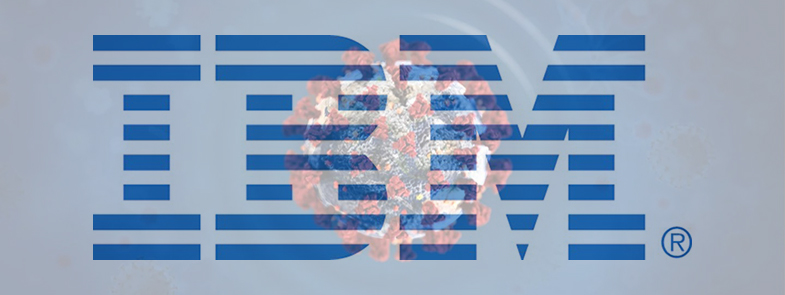Maybe these companies were able to pivot easily because IBM i doesn’t require the daily hand-holding required to keep other platforms working.
It’s easy to look at the year 2020 with contempt.
I’ve done it. Most all of us probably have. There’s no reason to do a recap of 2020. It started with a near-miss war with Iran, and it hasn’t let up since. I was joking the other week that the only thing we’re missing in 2020 is the equivalent of the Ten Plagues of Egypt. And we still have a couple of months for that to unfold.
What tends to get overlooked in this year of ever-constant misery are the people and organizations who are helping. I’ll get to that shortly.
During the summer, it appeared as if companies were either doing really well or not doing well at all. Of course, I’m sure there were a great number of companies that were and maybe still are treading water, staying afloat and weathering the storm as best they can. Grocery clerks and transport truck drivers were rightfully deemed essential workers as they were vital to the supply chain of getting food on our tables.
Of course, when the economy took a massive hit, almost every IBM i customer preparing for a POWER9 upgrade had those plans shelved until recently. Some companies went out of business, but the majority were able to hunker down and ride it out by way of offering remote work arrangements to the office. Production facilities employed physical distancing and masks the best they could. The company I work for kept tabs on many of those companies, offering assistance where we could to get them over the hump.
What amazed me was the way some of these customers fundamentally altered their core product offerings to meet product demand. I’ve had not much luck in getting companies to go on record, so while some of the following IBM i customers are anonymous, I’m proud to say I know a couple of them personally.
Often attributed to Charles Darwin but in fact was Leon C. Megginson, the following quote still resonates if you put it in context of any business: “It is not the most intellectual of the species that survives; it is not the strongest that survives; but the species that survives is the one that is able best to adapt and adjust to the changing environment in which it finds itself.” We are all in a changing environment that is 2020. We’ve had to learn how to work from home. We’ve all found out we’ve been washing our hands the wrong way our whole lives in terms of frequency and thoroughness. We’ve had to adjust to wearing face masks. I haven’t flown in nearly a year! For me, that’s a massive change. But we carry on the best we can. Those who have thrived and survived have either been in an already-capable position to scale their capabilities (i.e., Amazon) or were able to turn on a dime and reinvent themselves to tackle the pandemic. This article is about the latter.
First, I’ll mention a clothing manufacturer in Canada. They actually make clothes from the fabric and thread on up. Before COVID hit, they were looking at a new POWER9 upgrade from their existing POWER7 machine. They had to delay their purchase and migration. Not because of COVID but because manufacturing requirements went through the roof. Literally. And I don’t mean literally as figuratively, since “literally” is now used as an adjective to provide emphasis. I mean they had zero capacity in their production facility, and they had to hire hundreds of new personnel to sew material from home. What kind of material? Personal Protective Equipment (PPE). They changed their business to produce medical-grade gowns and smocks to be exact.
Another IBM i customer I’m familiar with manufactures musical instruments. In fact, I’ve been playing their equipment since I was about 14. Think about any company that manufactures guitar strings or drum heads. There are no touring musicians this summer. No music lessons. Very few shows in small clubs and bars. Demand simply dropped. So what did they do? They converted their business to make face shields with their drumhead manufacturing equipment. It took only three days for their engineers to come up with a prototype. I was helping them update a TLS certificate one night, and they mentioned what they were doing. At that point, I said I’ve been playing their gear for 25 years and they now have a customer for life.
One IBM i customer in Michigan converted its windshield wash production facility to make sanitizing liquid.
Another IBM i customer converted its manufacturing business to build medical-grade valves for ventilators.
These examples are not in short supply.
Maybe the interesting thing about these stories is that I haven’t mentioned how IBM i has helped their businesses pivot. I haven’t said, “This or that company refactored their RPG application to provide web-based data entry to accommodate new online orders.” While I’m sure that sort of thing has happened, I’m talking business changes, not technology changes.
Maybe these companies were able to pivot easily because IBM i doesn’t require the daily hand-holding required to keep other platforms working. Maybe IBM i can scale to accommodate a drastic increase in workload without any fundamental application adjustments. Maybe IBM i allows IT departments the freedom to not worry about the technology and focus not only on survival of the business, but also on adding business value and changing to meet new customer needs.
The “i” in IBM i stands for integration. Having that i helps put the “a” in adaptability.








LATEST COMMENTS
MC Press Online